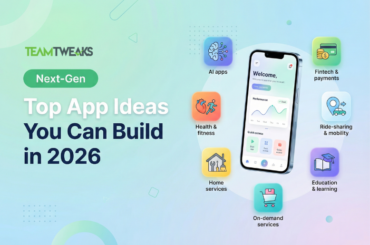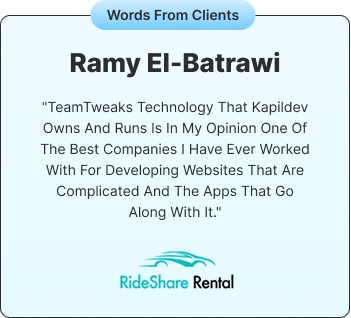Certainly in the rapidly evolving travel industry, rental booking apps like Airbnb have disrupted traditional hospitality, offering user friendly interfaces, global reach, and unique accommodations. Undoubtedly by creating a vibrant market where guests can choose from a vast array of listings and hosts can effortlessly manage their properties, Airbnb has transformed the hospitality sector. Likewise this blog will provide a comprehensive understanding of how these apps work and criteria to choose a mobile app development company. whereas and business models, essential features, and the development process required to build a successful Airbnb like platform. Additionally, we’ll examine potential competitors and strategies that multiple location resort owners can adopt to leverage these platforms.
Understanding the Airbnb Business Model
For instance Airbnb’s business model is a dual sided marketplace that connects hosts (property owners) with guests (travelers). Also here’s a detailed breakdown of their model:Hosts: Property owners list their accommodations on the platform. Moreover they can rent out anything from a single room to an entire property.
Airbnb Business
- Guests: Travelers search, book, and stay in these accommodations, with secure payment and communication managed through Airbnb.
- Revenue Streams:
- Service Fees: Airbnb charges guests a booking fee (typically 6-12%) and hosts a service fee (usually around 3%).
- Experiences: Hosts and locals can sell travel experiences like guided tours, which Airbnb takes a cut of.
- Taxes: Airbnb collects and remits taxes on behalf of hosts in specific locations.
This model enables a high-profit margin by leveraging user generated content (property listings) without owning physical assets.
Key Features to Consider in apps like Airbnb Development
To build an app like Airbnb, consider implementing these crucial features:
| Feature | Description |
| User Authentication | Secure signup/login via email, phone, or social media accounts. |
| Profile Management | Personal info, property listings for hosts, past/future bookings for guests. |
| Search and Filter | Advanced search with filters like location, price range, and amenities. |
| Listing Management | Tools for hosts to add/manage listings, including photos, descriptions, and pricing. |
| Bookings | Instant or request based booking system with calendar availability. |
| Payment Gateway | Secure online transactions with multiple payment methods. |
| Reviews and Ratings | Transparent reviews for both guests and hosts to build trust. |
| Notifications | Alerts for bookings, changes, and messages via push notifications and email. |
| Messaging | In app chat for seamless communication between hosts and guests. |
| Admin Panel | Centralized control for managing users, listings, and transactions. |
| Support and Help Desk | Customer support for resolving disputes and answering queries. |
Multiple Location Resort Owners: Leveraging Platforms like Airbnb
For resort owners with properties across multiple locations, leveraging platforms like Airbnb provides a cost effective and efficient way to maximize bookings and brand awareness. Here’s how.
Airbnb Multiple Location Resort Owners
- Diversify Listings: By listing different types of accommodations across locations, you can target varied demographics, from luxury travelers to budget conscious backpackers.
- Tailored Marketing: Customize your listing descriptions, pricing, and photos based on the target audience and local attractions.
- Host Branding: Create a consistent host profile across all properties to build brand identity and establish trust.
- Local Experiences: Provide unique local experiences that can be bundled with bookings to enhance the traveler’s stay.
- Guest Loyalty Programs: Use in-app messaging to offer special deals to returning guests and encourage cross-property bookings.
- Property Management Software Integration: Integrate with property management software to manage reservations, availability, and pricing dynamically.
- Direct Booking Encouragement: Use the platform to gain initial bookings and then guide guests to your own direct booking site for subsequent reservations.
Competitors of Airbnb
While Airbnb is dominant in the short term rental space, it’s not without competitors. Each competitor offers different services or emphasizes distinct features that can influence the rental ecosystem. Here’s a list of some prominent competitors.
- Booking.com:
- Features: Known for its wide range of listings, including hotels, apartments, and private homes.
- USP: Offers an integrated experience with traditional hotel accommodations and vacation rentals.
- TripAdvisor Rentals:
- Features: Combines property rentals with a robust review system for travel destinations.
- USP: Leverages TripAdvisor’s strong community of reviewers to provide insights on properties.
- Sonder:
- Features: Operates as a hybrid between a hotel and a short-term rental, providing high-quality, fully furnished spaces.
- USP: Offers standardized hospitality with the comfort of a home-like setting.
Detailed Analysis of the App Development Process
Developing an app like Airbnb requires meticulous planning, skilled execution, and consistent refinement. Here’s an in-depth look at each step of the development process, including mobile app development specifics for Android, iOS, and cross platform like flutter app development solutions.
1. Market Research and Idea Validation
Before developing an app, thoroughly research the market and validate your idea to ensure there’s demand and opportunity.
- Competitor Analysis: Examine competitors, analyze their strengths and weaknesses, and identify unique selling points that can differentiate your platform.
- Target Audience: Define your target audience’s demographics and preferences to tailor your product effectively.
- Focus Groups: Validate the concept and gather feedback on potential features from target audiences through interviews and surveys.
2. Defining Project Scope
Clearly outline the project’s scope by prioritizing features, functionalities, and unique selling points.
- MVP Features: Identify the core features that will form the Minimum Viable Product (MVP), balancing development cost and product functionality.
- Unique Selling Propositions: Determine how your platform will stand out among competitors, whether through additional features, pricing models, or user experiences.
3. UI/UX Design
A well designed user interface and seamless user experience are crucial for any successful rental app. Focus on creating intuitive interfaces and streamlined processes.
- User Journey Mapping: Outline hosts’ and guests’ journeys across different features, ensuring logical navigation.
- Wireframing: Create detailed wireframes for each screen to map the app’s structure and components.
- Prototyping: Develop clickable prototypes to test and refine user interactions, offering a preview of the final product.
4. Backend and Frontend Development
This stage involves building both the backend (server-side logic) and frontend (user-facing elements). Here’s how this development looks across platforms:
Backend Development
- Develop server side logic for data storage, security, and processing. Utilize technologies like Python, Ruby, or Node.js.
- Plan a scalable and secure database schema to handle user data, listings, bookings, and transactions.
Frontend Development
- iOS Development: Build the iOS application using Swift or Objective-C, considering Apple’s Human Interface Guidelines for intuitive design.
- Android App Development: Use Kotlin or Java for Android app development, adhering to Material Design principles.
- Cross Platform Development: For faster and unified development, frameworks like React Native or Flutter can be used to create applications that work on both iOS and Android devices.
5. Integrations
Integrating third-party services and APIs enhances the app’s functionality.
- Third-Party APIs: Integrate APIs for maps (Google Maps), payment gateways (Stripe, PayPal), messaging, and weather.
- Authentication Services: Implement secure user authentication with multi-factor options and social media logins.
- Push Notifications: Set up notification services to alert users about booking updates and other critical information.
6. Testing and Quality Assurance
Quality assurance ensures a bug-free and user-friendly product before launch.
- Functional Testing: Verify that each feature works correctly across different devices and operating systems.
- Load Testing: Ensure the platform can handle heavy traffic and high transaction volumes.
- Beta Testing: Gather user feedback from a controlled group to fix issues before the official launch.
7. Launch and Marketing
The launch phase is critical to maximizing user adoption and attracting initial bookings.
- Deployment: Release the app on iOS, Android, and web platforms.
- Marketing Strategies: Use content marketing, social media marketing, and influencer campaigns to attract users to the platform.
- SEO Optimization: Optimize app listings for relevant keywords to improve discoverability on search engines and app stores.
8. Maintenance and Updates
Regular maintenance and feature updates ensure the app remains relevant and competitive.
- Bug Fixes: Monitor the app for performance issues and fix bugs through regular updates.
- Feature Updates: Regularly add new features based on user feedback and market trends to keep the app competitive.
- Security Upgrades: Implement security patches and updates to protect user data and comply with data privacy regulations.
Cost Analysis of Developing an App Like Airbnb
The cost of developing an app like Airbnb varies greatly depending on features, region, and complexity. Here’s a detailed breakdown using different development approaches.
Hire Top Developers with the team for each process.
| Development Stage | Estimated Cost Range (USD) |
| UI/UX Design | $5,000 – $20,000 |
| iOS App Development | $20,000 – $80,000 |
| Android App Development | $20,000 – $80,000 |
| Cross-Platform Development | $30,000 – $90,000 |
| Backend Development | $25,000 – $70,000 |
| Integrations | $5,000 – $15,000 |
| Testing and QA | $10,000 – $30,000 |
| Maintenance | Ongoing (typically 15-20% of initial costs) |
Factors Influencing Costs
- Feature Complexity: More features mean higher development and testing costs.
- Location of Development Team: Rates vary between regions, with developers in Western Europe and North America being more expensive.
- Third-Party Integrations: Incorporating third-party services like payment gateways adds to development costs.
- Platform: Developing for multiple platforms (iOS, Android, and Web development) requires more resources.
- Post-Launch Support: Regular maintenance, bug fixes, and feature enhancements can incur ongoing costs.
Example Cost Breakdown
- Basic MVP: A basic MVP with core features can range from $50,000 to $200,000.
- Full-Featured Solution: A comprehensive app with advanced features and integrations can exceed $500,000.
Hidden Costs
- Legal and Compliance: Costs for incorporating business, legal advice, and data privacy compliance.
- Marketing and Promotion: Campaigns to attract initial users and build brand awareness.
- Customer Support: Setting up and maintaining a customer support team or service for post-launch inquiries.
Must Have Features in Host App

When developing an app like Airbnb, it’s crucial to design two separate user journeys: one for hosts managing their properties and another for customers looking to book accommodations.
Essential features each app
- Property Listing Management:
- Hosts should be able to easily create and edit listings.
- Upload photos, write descriptions, set availability, and pricing.
- Booking Management:
- View all current, upcoming, and past bookings.
- Accept or decline booking requests.
- Availability Calendar:
- An interactive calendar showing booked and available dates.
- Allows setting custom prices for special dates and holidays.
- Messaging:
- In-app chat for hosts to communicate with guests for questions or special requests.
- Analytics and Reports:
- Insights on booking trends, occupancy rates, and revenue generation.
- Filterable by listing and time range.
Other Must Have Features in Host App
- Notifications:
- Alerts for new bookings, inquiries, and changes in reservations.
- Payment confirmation notifications.
- Payment Management:
- View total earnings and request payouts.
- Track financial transactions, including fees and taxes.
- Profile and Review Management:
- Update personal information and verify identity.
- View guest reviews and respond to feedback.
- Support:
- In-app customer support for resolving booking issues, disputes, and technical queries.
- Multi-Language Support:
- Support for multiple languages to accommodate international hosts.
Must Have Features in Customer App
- User Authentication:
- Easy signup/login via email, phone, or social media accounts.
- Profile setup with preferences and payment information.
- Search and Filter:
- Advanced search by location, date, and property type.
- Filters for price, amenities, and accessibility options.
- Property Listings:
- Detailed listings with high-quality photos, descriptions, and location maps.
- Guest reviews and ratings for each property.
- Booking System:
- Instant or request-based booking options.
- Access to trip details like address, check-in/out times, and host contact.
Other Must Have Features in Customer App
- Wishlists/Favorites:
- Save favorite properties to revisit later.
- Organize wish lists for different travel plans.
- Messaging:
- Direct chat to communicate with hosts before and after booking.
- Payments and Invoicing:
- Secure payment gateway supporting multiple payment methods.
- Automated invoice generation for completed bookings.
- Notifications:
- Alerts for new recommendations, upcoming trips, and check-in reminders.
- Notifications about booking status and host replies.
- Review and Rating:
- Write reviews and provide ratings for properties and hosts.
- View previous ratings and read other guests’ feedback.
- Support:
- 24/7 customer support for travel emergencies, cancellations, and technical issues.
- Multi-Language and Currency Support:
- Language selection and automatic currency conversion for international guests.
These feature sets ensure both hosts and customers receive an intuitive and efficient user experience, streamlining property management and travel planning.
How Booking Apps like Airbnb Earns Income
An app like Airbnb generates revenue through multiple channels, making it a profitable business model. Here are the main ways such apps earn income:
- Service Fees:
- Guest Fees: Typically, guests are charged a booking fee, ranging from 6-12% of the total booking amount.
- Host Fees: Hosts usually pay a service fee of around 3% of their booking revenue.
- Experiences:
- Airbnb allows hosts and locals to offer activities and tours, like cooking classes, city tours, or outdoor adventures.
- The platform takes a percentage (around 20%) from each booking made for these experiences.
- Subscription Model:
- Some apps provide hosts with premium subscription packages that offer additional benefits like better visibility in search results or special advertising opportunities.
- Listing Fees:
- Some platforms charge hosts a fixed fee to list properties. This could be a one-time fee or a recurring payment for maintaining the listing.
Additional Revenue Stream
- Advertising:
- Apps can sell advertising space on their platforms to travel-related companies, offering promoted listings, banners, or sponsored searches.
- Affiliate Programs:
- The app can partner with other travel services, like car rentals, travel insurance, or restaurant booking sites, and earn commissions by referring guests to them.
- Corporate and Group Bookings:
- Offering special plans and rates to businesses or large groups seeking corporate travel solutions can generate additional revenue streams.
- Property Management Services:
- Some apps can offer comprehensive property management services, including cleaning, maintenance, and communication with guests, charging hosts for these services.
- Taxes and Regulatory Fees:
- In specific locations, the platform can collect local taxes or regulatory fees and charge a processing fee for facilitating these payments.
- Data Insights and Analytics:
- Offering anonymized data insights to hospitality industry partners or local governments interested in understanding tourism trends can provide an additional revenue source.
By combining these channels effectively, an app like Airbnb can maximize its profitability and sustain long-term growth in the rental booking market.
Top Ten Tourism Countries with International Tourist Arrivals and Revenue (2014-2023)

Here’s a table showcasing the top ten countries based on international tourist arrivals, along with the estimated revenue each generated from 2014 to 2023.
| Rank | Country | Avg. Annual International Tourist Arrivals (Millions) | Avg. Annual Tourism Revenue ($ Billion) |
|---|---|---|---|
| 1 | France | 82 – 90 | 60 – 65 |
| 2 | Spain | 75 – 83 | 75 – 90 |
| 3 | United States | 75 – 79 | 220 – 260 |
| 4 | China | 59 – 65 | 120 – 140 |
| 5 | Italy | 50 – 63 | 40 – 50 |
| 6 | Turkey | 40 – 52 | 25 – 35 |
| 7 | Mexico | 39 – 46 | 20 – 30 |
| 8 | United Kingdom | 35 – 41 | 40 – 50 |
| 9 | Germany | 37 – 40 | 35 – 45 |
| 10 | Thailand | 33 – 40 | 55 – 60 |
Key Trends
- France: Retained its top position due to its diverse tourism offerings, from historical landmarks to modern attractions.
- United States: Despite not topping the arrival list, it leads revenue generation due to higher tourist spending.
- Spain: Popular for its Mediterranean climate and cultural heritage.
- China: Rising in international tourism with its historical sites and rapidly growing middle class.
- Turkey and Thailand: Gained popularity among budget-conscious tourists and those seeking unique cultural experiences.
Revenue and Arrivals Trend Analysis
- The countries have largely seen positive trends in both tourist arrivals and revenue generation, aside from disruptions like the COVID-19 pandemic.
- Tourism recovery is strong in Europe, Asia, and North America, driving both regional and global growth.
These statistics provide a clear view of the global tourism dynamics and reflect the increasing significance of the industry in the world economy.
Hiring an Experienced Mobile App Development Agency
To find the right mobile app development agency for custom software development, start with thorough research and referrals. Use platforms like Clutch, GoodFirms, and DesignRush to compare agencies. Assess their portfolios and case studies to evaluate their design quality, functionality, and ability to solve challenges in similar projects. Ensure the agency has expertise in your chosen development platform, whether native or cross platform, and is familiar with API development, third-party integrations, and scalability.
DevOps Impact in Development
In the same way if they have a DevOps consultant, make sure to utilize CI/CD pipelines and tools like Jenkins to optimize development workflows and ensure smooth delivery. whereas choose agencies with clear communication and project management practices that align with your timelines. Before verify their use of methodologies like Agile or Scrum, and ensure they maintain rigorous testing and quality assurance standards.
Also Request a comprehensive proposal detailing app development cost, timelines, and contractual clauses for testing and post launch support. Also reach out to past clients and read online reviews to confirm the agency’s technical skills and reliability. Finally These steps will help you find a reputable mobile app development agency aligned with your vision.
FAQs on App Development Process
- What are the key features required to build an app like Airbnb?
For instance Building an app like Airbnb requires features like user authentication, profile management, search and filtering, listing management, booking, payment gateways, reviews and ratings, notifications, messaging, and an admin panel. Support features like customer service and analytics are also crucial. - What are the main factors affecting the cost of developing an app like Airbnb?
Meanwhile costs are influenced by feature complexity, team location, third-party integrations, and platform selection. An MVP could range from $50,000 to $200,000, while a full-scale app may exceed $500,000. - Is it better to develop a native app for iOS and Android or a cross-platform solution?
Native apps deliver superior performance but are more costly to develop. Cross-platform frameworks like React Native or Flutter can speed up deployment with unified development, although they may have limitations in platform specific features. - How can I ensure my app has a seamless user experience for both hosts and guests?
So that Map out user journeys, offer intuitive navigation, streamline the booking process, and customize features for each user group. Also regularly refine the app based on user feedback and ensure smooth in-app communication. - What are some hidden costs involved in developing an app like Airbnb?
Although hidden costs include legal compliance, marketing campaigns, customer support setup, data privacy, security measures, and internationalization.
Conclusion
In conclusion ready to disrupt the rental market with a unique app? Eventually to build an app like Airbnb, it’s essential to understand its business model, carefully plan the development process, and incorporate the right native or cross platform technologies for your audience. Certainly start by hiring an experienced mobile app development agency that excels in custom software development. Undoubtedly with DevOps expertise, they can implement CI/CD pipelines and development tools like Jenkins to optimize delivery.
Such as ensure your platform is equipped with crucial features for hosts and guests and maintain a competitive edge with scalable, market-aligned solutions. By following these strategies, you can create an app that stands out and soars above the competition.

















